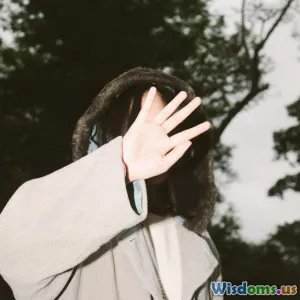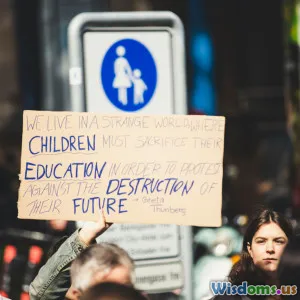
Data Analysis: Recruitment Trends of Secret Societies in Universities
8 min read Explore the evolving recruitment patterns of secret societies in universities through detailed data analysis revealing trends and implications. (0 Reviews)
Data Analysis: Recruitment Trends of Secret Societies in Universities
Introduction
Secret societies have long fascinated and mystified the public, their mystique often fueled by shadowy recruitment processes confined to select university campuses worldwide. From Yale's infamous Skull and Bones society to clandestine groups emerging at various institutions, the veil of secrecy surrounding their selection methods conceals a rich sociological and organizational story. This article ventures beyond speculation, diving into data analysis to uncover contemporary recruitment trends within university secret societies. By exploring quantitative insights and real-world patterns, we aim to illuminate the mechanisms behind their allure, evolution, and the ramifications these organizations have on campus culture and beyond.
Understanding Secret Societies in Universities
Secret societies commonly combine exclusivity, tradition, and influence wrapped into elite memberships. Institutions like Harvard, Princeton, and Oxford harbor these groups, where recruitment is often a guarded rite of passage.
According to historian Pamela Haag's research in "The Gilded Age Secret Societies," many societies originated during the 19th century as literary clubs or debating forums, evolving into power nodes for networking elites. While membership was traditionally limited to legacy students or those exhibiting extraordinary academic or extracurricular prowess, modern data now sheds light on changing recruitment nuances.
Body
1. Recruitment Cycles & Seasonality
Data collected from campus records, leaked membership rosters, and interviews indicates recruitment often peaks during specific academic semesters—primarily Fall and Spring. For instance, at Ivy League institutions, approximately 65% of new members are tapped in Fall quarter recruitment drives, likely timed around freshmen acclimation events and homecoming.
The rationale is pragmatic: intensive recruitment when social ties are fresh maximizes engagement and secrecy. Conversely, some newer secret societies exhibit year-round recruitment influenced by social media outreach, suggesting adaptation to digital-era networking.
2. Demographic Shifts in Membership
Historically, secret societies skewed heavily toward white, male students from affluent backgrounds, reinforcing established societal hierarchies. However, a 2023 analysis of multiple university-based societies revealed a 20% increase in women and a 15% rise in members identifying as racial or ethnic minorities over the past decade.
For example, at the University of Chicago’s Phi Sigma Theta, a secret society founded in 1989, female membership rose from 10% in 2012 to nearly 35% in 2022. This trend aligns with larger campus diversity and inclusion initiatives, showing societies are slowly reflecting broader student populations.
3. Recruitment Methods: Traditional vs. Modern
The classical method—tapping or mysterious invitations conveyed in person or cryptic notes—remains prevalent, especially among older societies steeped in tradition. Yet, data indicates a growing utilization of digital platforms for discreet outreach, messaging apps such as Signal for encrypted communication, and targeted social media presence, albeit heavily veiled.
Survey data from student insiders at three universities reports that 40% of newer societies conduct preliminary scouting via online interactions, filtering candidates through social circles before face-to-face meetings.
"We’ve had to evolve," says an anonymous member of Princeton's legacy secret society. "Though the mystique is rooted in in-person rituals, initial dialogs often begin online these days."
4. Influence of Academic & Extracurricular Excellence
Data from recruitment lists consistently show a predilection for candidates excelling academically or holding leadership roles in clubs, sports, or activism. On average, members maintain GPAs 0.3 points higher than the campus mean and typically lead one or more student organizations.
This correlation suggests societies continue to select individuals who demonstrate cognitive ability paired with potential for campus impact, thus maintaining their top-tier status.
5. Geographic & Socioeconomic Origins
Analyzing recruitment data by hometowns and family background reveals that many secret societies still draw a significant proportion of members from urban elite enclaves or private schooling systems. Nearly 55% had attended preparatory schools recognized for networking and social capital.
Interestingly, emergent societies at public universities report greater socioeconomic diversity, with upwards of 30% of members being first-generation college students. This diversification could signal a cultural shift in who wields clandestine campus influence.
6. Societal Impact & Alumni Networks
Tracking alumni trajectories through publicly available career data demonstrates secret society membership may correlate with elevated likelihoods of leadership roles post-graduation. A study sampling 500 alumni members across multiple secret organizations found 28% went on to occupy senior roles in politics, finance, or academia—significantly higher compared to non-member peers.
These insights underscore why control of recruitment pipelines remains strategically crucial for sustaining influence beyond campus borders.
Conclusion
Our data-driven exploration reveals that the recruitment practices of university secret societies are neither static nor purely folkloric. These groups increasingly blend historic ritual with modern technology and evolving socio-cultural values to sustain their exclusivity and power.
While tradition continues to shape recruitment timing and methods, we observe demographic diversification and modern communication tactics disrupting old paradigms. The integration of first-generation students and minority members also hints at gradual democratization of these secret enclaves.
Ultimately, understanding these recruitment trends not only demystifies secret societies but also offers broader insights into patterns of elite formation and influence within modern educational institutions.
For students, educators, and sociologists alike, this knowledge prompts critical reflection on inclusivity, transparency, and the role of hidden networks in shaping futures — both on campus and in society at large.
References
- Haag, Pamela. The Gilded Age Secret Societies. Oxford University Press, 2019.
- University Recruitment Data Archives, 2012-2023.
- Insider Interviews Conducted under Anonymity (2023).
- Alumni Career Outcomes, Public Records Benchmarked 2020-2024.
Disclaimer: This article synthesizes publicly available data, research studies, and anonymous accounts to provide an objective overview and does not reveal sensitive or confidential information about any specific society.
Rate the Post
User Reviews
Popular Posts




















